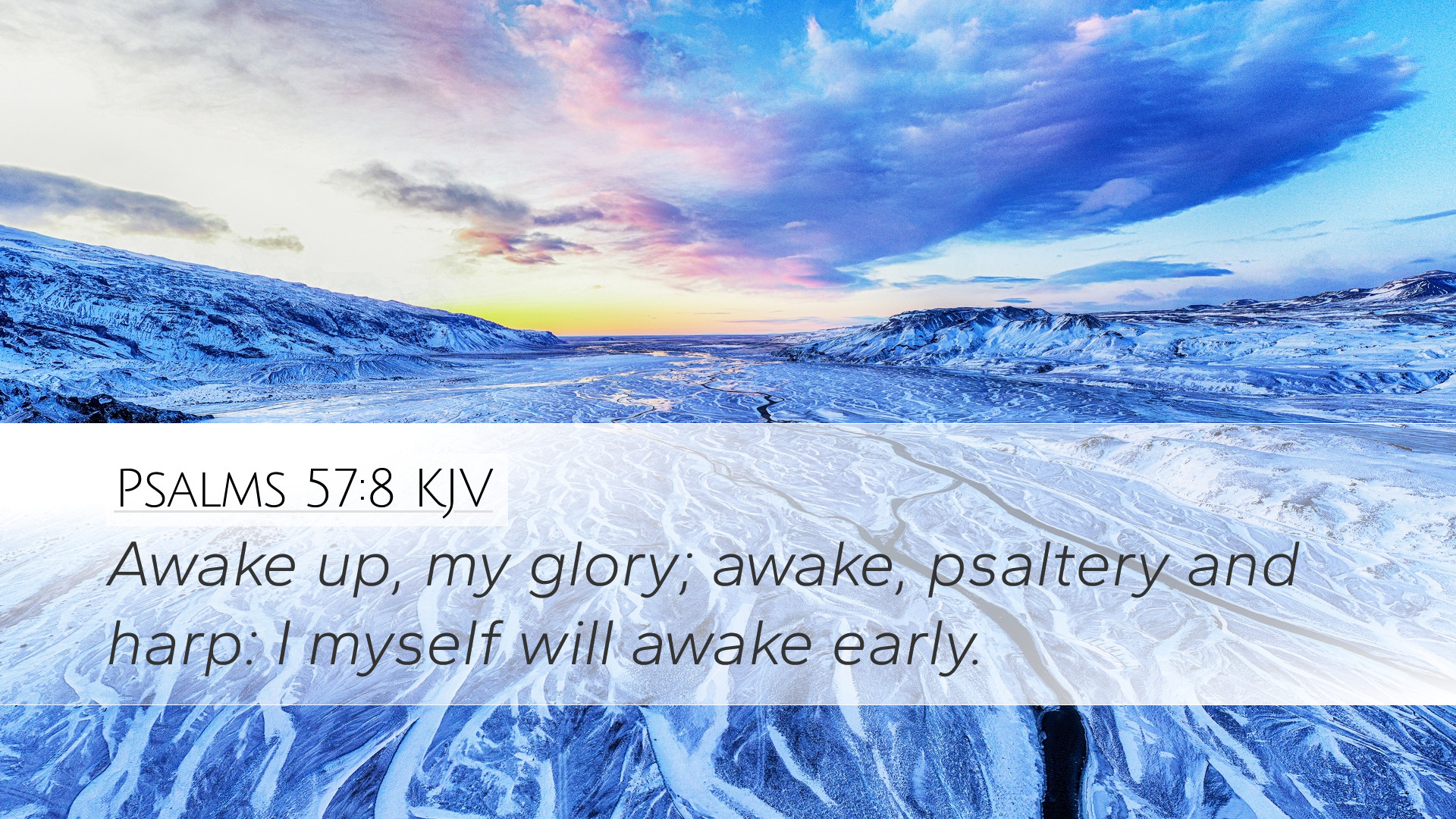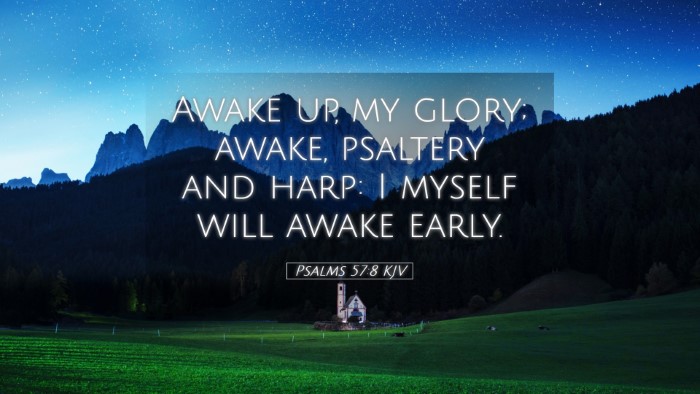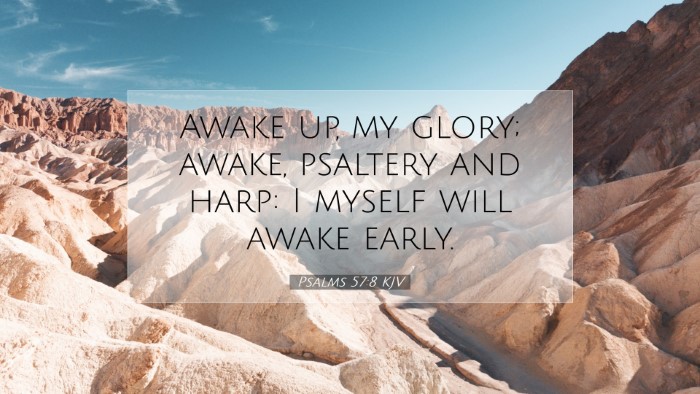Psalms 57:8 - A Commentary
Verse Context: Psalms 57 is a prayer of David when he fled from Saul in the cave. The chapter as a whole reflects deep emotions, combining cries for mercy with declarations of trust in God.
Verse: Psalms 57:8
"Awake up, my glory; awake, psaltery and harp: I myself will awake early."
Introduction
This verse serves as a personal call from David, expressing a desire to rouse his entire being in the worship of God. It is not merely a call to music but a holistic awakening involving spirit, mind, and body to offer praise. This commentary will explore the multiplicity of meanings in David's invocation, drawing from the insights of esteemed commentators.
David's Inner Call to Worship
Matthew Henry notes that David is calling upon his heart and instruments as representatives of his entire being. When he speaks of his "glory," he refers to his spiritual power and vitality. This calls to mind Paul’s exhortation to present our bodies as living sacrifices (Romans 12:1).
Albert Barnes elaborates by observing that 'glory' can denote both David's own life and the honor he attributes to God. “My glory” is a reference not only to his own being but to the capacity to glorify the Lord. This indicates a recognition of the state of being filled with the Spirit that enables true worship.
The Instruments of Praise
David’s mention of the 'psaltery' and 'harp' reflects the ancient Israelite use of musical instruments in worship, as highlighted by Adam Clarke. These instruments symbolize both the joyous expression of worship and the rich tradition of Israel's poetic and musical heritage. Clarke suggests that this also indicates a readiness to rejoice despite circumstances, emphasizing the importance of music in spiritual life.
The use of instruments in worship, as referenced by David, is a profound acknowledgment that worship is not merely an internal disposition but also an enthusiastic expression that encompasses both the heart and the arts.
A Personal Determination to Awaken Early
When David states, "I myself will awake early," it signifies a deliberate and intentional awakening to commune with God at the dawn of a new day. This phrase indicates discipline and readiness to seek God earnestly. Matthew Henry points out that mornings are often portrayed in the Psalms as a perfect backdrop for communion with the Lord, offering a fresh start and new mercies.
Albert Barnes elaborates on the importance of early devotion, suggesting that beginning the day with prayer and worship sets the tone for the rest of the day. This can serve as a model for believers, encouraging a habitual practice of early morning worship.
Theological Implications
The verse touches on several theological themes, including the nature of worship, the role of music, and the believer's personal commitment to God. Worship is not merely reactive to God's actions; it is a proactive endeavor of the worshiper, as emphasized by both Henry and Barnes.
- The Nature of Worship: Worship encompasses both the inner disposition and outward expression. David's call to "awake" symbolizes this duality.
- The Element of Music: Music is intrinsically linked to worship in the biblical narrative, serving as an emotional and spiritual conduit for expressing praise.
- Personal Responsibility: The phrase "I myself will awake" places responsibility on the individual believer to initiate and sustain practices of devotion and worship.
Application for Church and Individual Life
For pastors and church leaders, this verse serves as a reminder of the importance of fostering an environment that promotes heartfelt worship. Encouraging congregational participation through music can revitalize worship experiences.
For individual believers, the practice of early morning devotion and the readiness to call upon their own 'instruments' of praise—be it through singing, prayer, or creative expression—can deepen one’s relational dynamic with God.
Conclusion
Psalms 57:8 encapsulates a deep desire for divine connection through awakened worship. Combining insights from Matthew Henry, Albert Barnes, and Adam Clarke reveals the richness of this verse, highlighting the multifaceted approach to worship that spans emotion, intention, and practice. In a world filled with distractions, this verse challenges believers to prioritize their relationship with God, calling each person to awaken their whole selves in dedicated worship and praise.


